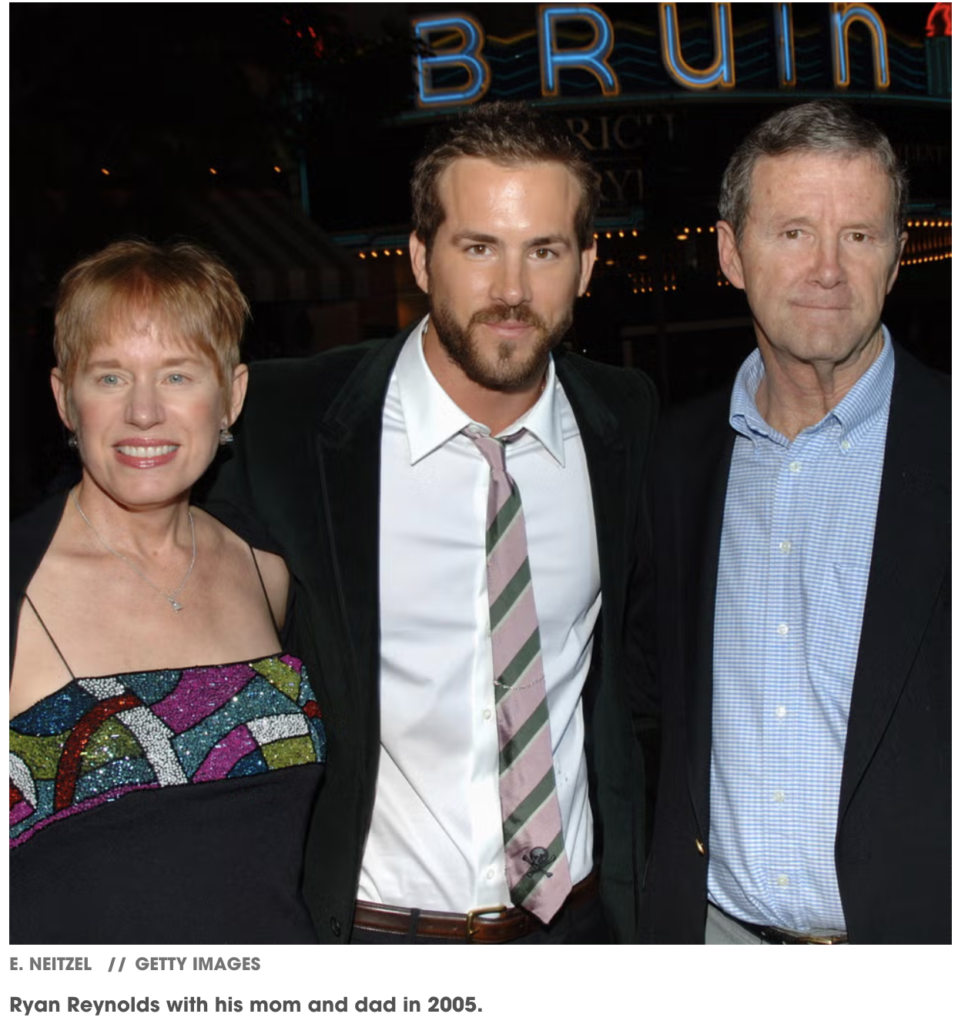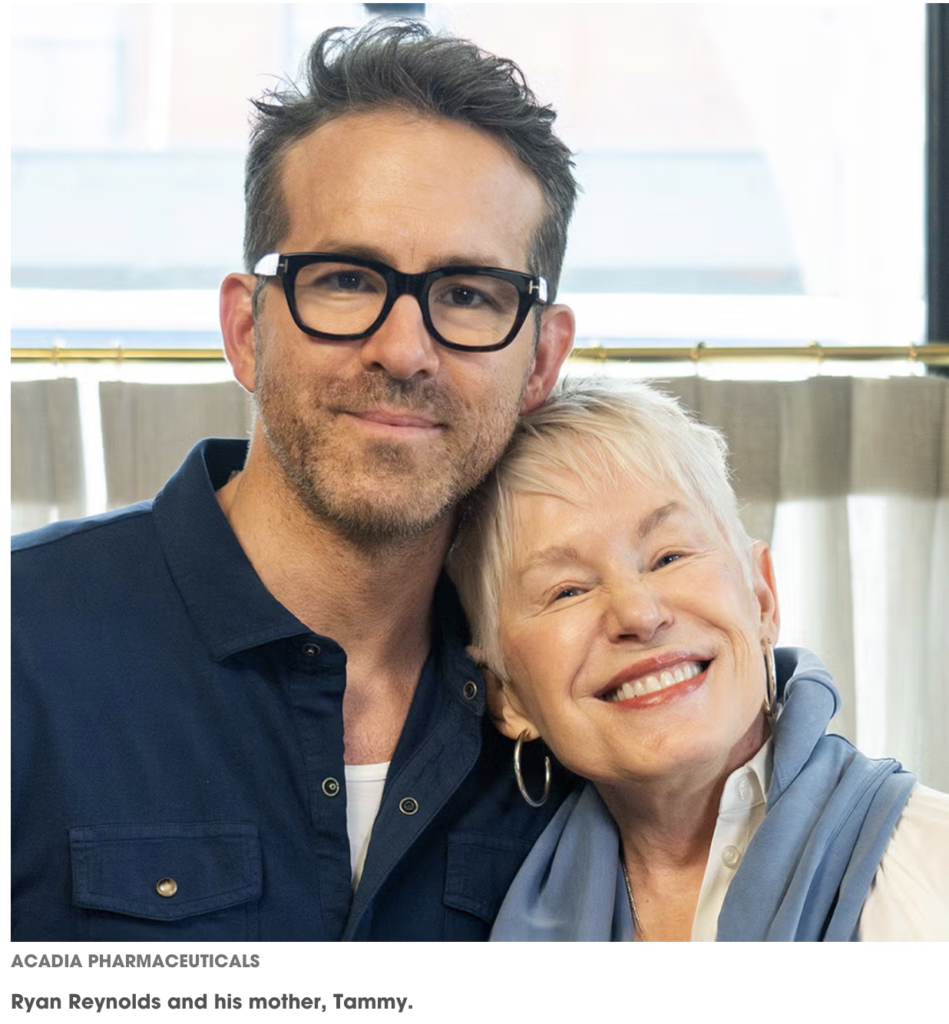The actor and entrepreneur opens up about his late father’s heartbreaking experience with Parkinson’s—and highlights the disease’s often-overlooked issues
BY RYAN REYNOLDS AS TOLD TO KAITLYN PHOENIX PUBLISHED on https://www.prevention.com/health
Actor Ryan Reynolds is well-known for his roles in movies like Deadpool & Wolverine (and his marriage to Blake Lively), but behind the scenes he and his family quietly struggled for years with his father’s Parkinson’s disease. Diagnosed in 1998 at the age of 57, Reynolds’s dad James rarely acknowledged the condition even as he dealt with the traditional symptoms as well as ones that caught his family off guard.
Parkinson’s is a disorder that affects the entire central nervous system. That means that in addition to the motor symptoms many people are familiar with like tremors and rigid muscles, it can also cause non-motor symptoms such as anxiety, forgetfulness, hallucinations and delusions. About half of the one million people with Parkinson’s experience hallucinations and/or delusions, but up to 90% of them don’t let their doctors know about these symptoms.
Now a father of four himself, Reynolds is finally opening up about the complicated relationship he had with his father, what he’s learned since James’s death in 2015 and how those difficult-but-rarely-talked-about Parkinson’s symptoms are worth discussing. He’s teamed up with Acadia Pharmaceuticals to launch its More to Parkinson’s campaign with the hope to educate and drive conversation about recognizing and managing non-motor symptoms of Parkinson’s, including hallucinations and delusions.
Reynolds recalls, But my dad was an intensely prideful person. He barely spoke of the condition. If I were to venture a guess, he saw it as a weakness. He may have only uttered the word “Parkinson’s” three times between his diagnosis and his death. In a way, though, his denial brought my family even closer together as we searched for resources to try to help him.

An unexpected Parkinson’s progression
A few years after his diagnosis, though, my dad started experiencing episodes of delusions and hallucinations. Losing touch with reality took a toll on him, my mom and our whole family. This part of Parkinson’s was more challenging than the motor symptoms — for all of us. Sadly, it seemed the better his body was, the worse some of these other symptoms became.

Looking back, I wish we’d known, but we didn’t have the resources we have today. I imagine my dad would have liked to know that the issues he was experiencing were part of his Parkinson’s journey and nothing to be ashamed of. My father was never particularly forthcoming about his interior world, but I have no doubt he’d have felt less alone if he’d been aware. Actually, I think that knowing more about this would have made it a little bit easier for all of us.

Hope for the future
It’s important for people with any serious health condition to let their doctors know about all the symptoms they’re experiencing. Sometimes it can open your eyes to new information and sometimes it can open the door to new treatments. If my family had known what we now know about the link between hallucinations and delusions and Parkinson’s, we would have been better prepared to help my father.
My dad has been gone now for nearly a decade. I think it’s true that you never really appreciate the sacrifices and the devotion of time parents give their children until you have your own — and I think that’s probably a good thing. Kids should be able to expect that. They should almost take it for granted because that’s what safety feels like. I have enormous respect for the love and time I was given by my parents. I even respect and love the rockier moments because all those roads have lead here. And I hope sharing my story helps other families navigate their own difficult roads.